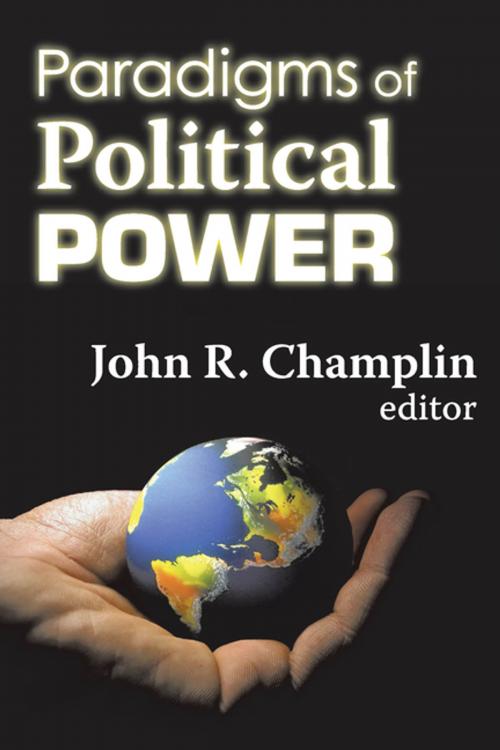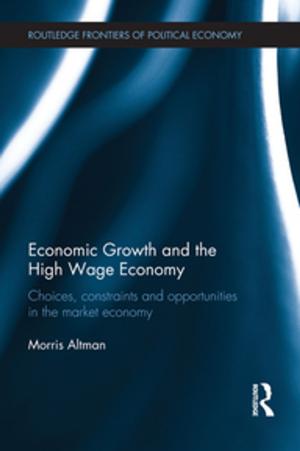Paradigms of Political Power
Nonfiction, Social & Cultural Studies, Political Science, Politics, History & Theory| Author: | ISBN: | 9781351500913 | |
| Publisher: | Taylor and Francis | Publication: | July 5, 2017 |
| Imprint: | Routledge | Language: | English |
| Author: | |
| ISBN: | 9781351500913 |
| Publisher: | Taylor and Francis |
| Publication: | July 5, 2017 |
| Imprint: | Routledge |
| Language: | English |
Generations of men have used the notion of "power" to make sense of their political experience. Despite the fact that the term has recently fallen into comparative disfavor, the scholarly debate over the nature of power continues, with experts still striving to obtain an exact understanding of what power really is. The works collected by John R. Champlin here clearly set forth all the important arguments in the lively dispute, with a focus on the essential question: can the concept of power be used to unify the study of politics?The contributors to this work search for a definition of power, assess the value of serious political analysis in terms of power, and illustrate applications of the "power concept" to issues locally, nationally, and internationally. Hans Morgenthau supports a power-based political theory; he is countered by Charles A. McClelland and James G. March. Seeking a coherent, useful definition of the term, Thomas Hobbes investigates power in terms of its cause, and Dorothy Emmet draws up a list of distinct uses of power. Theodore Lowi achieves a fresh start on power studies by distinguishing "arenas" of power according to expectations of costs and benefits. The Lowi contribution bears on the debate over how the United States is to be characterized. Opposing C. Wright Mills' theory of the power elite as well as the idea of pluralism, Peter Bachrach and Morton S. Baratz find that opportunities for participation in political decisions and power are very unequally distributed.This unique debate on the definition of power, engaging all sides in direct dialogue with one another, includes the work of important leading scholars in this area of thought. Together with an excellent introduction by the editor, the debate gives an active dimension to this book that will enliven all college classes and interested audiences.
Generations of men have used the notion of "power" to make sense of their political experience. Despite the fact that the term has recently fallen into comparative disfavor, the scholarly debate over the nature of power continues, with experts still striving to obtain an exact understanding of what power really is. The works collected by John R. Champlin here clearly set forth all the important arguments in the lively dispute, with a focus on the essential question: can the concept of power be used to unify the study of politics?The contributors to this work search for a definition of power, assess the value of serious political analysis in terms of power, and illustrate applications of the "power concept" to issues locally, nationally, and internationally. Hans Morgenthau supports a power-based political theory; he is countered by Charles A. McClelland and James G. March. Seeking a coherent, useful definition of the term, Thomas Hobbes investigates power in terms of its cause, and Dorothy Emmet draws up a list of distinct uses of power. Theodore Lowi achieves a fresh start on power studies by distinguishing "arenas" of power according to expectations of costs and benefits. The Lowi contribution bears on the debate over how the United States is to be characterized. Opposing C. Wright Mills' theory of the power elite as well as the idea of pluralism, Peter Bachrach and Morton S. Baratz find that opportunities for participation in political decisions and power are very unequally distributed.This unique debate on the definition of power, engaging all sides in direct dialogue with one another, includes the work of important leading scholars in this area of thought. Together with an excellent introduction by the editor, the debate gives an active dimension to this book that will enliven all college classes and interested audiences.















